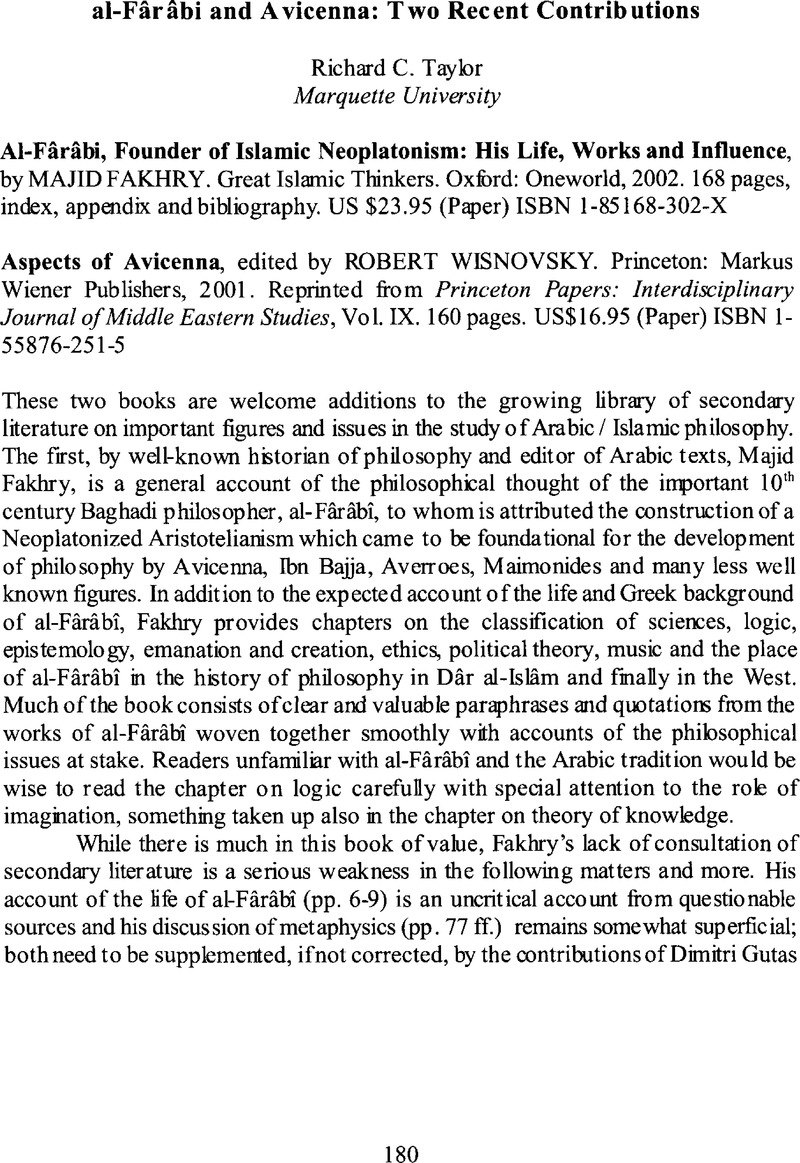Published online by Cambridge University Press: 09 March 2016

1 See “al-Fârâbî”, in Encyclopaedia Iranica, Yarshater, Ehsan, ed. (New York, 1999), pp. 208–29.Google Scholar The entire article with contributions by Gutas, Black, Druart, Sawa and Mahdi should be consulted.
2 See Geoffroy, Marc, “La tradition arabe du Peri nou d’Alexandre d’Aphrodise et les origines de la théorie ferabienne des quatre degrés de l’intellect,” in Aristotele e Alessandro di Afrodisia nella Tradizione Araba, D’Ancona, Cristina and Serra, Giuseppe, eds. (Subsidia Mediaevalia Patavina 3) (Padova, 2002), pp. 191–231.Google Scholar
3 See Jolivet, Jean, L’Intellect selon Kindi. (Leiden, 1971).Google Scholar
4 Gutas, Dimitri, Avicenna and the Aristotelian Tradition: Introduction to Reading Avicenna’s Philosophical Works (Leiden, 1988). Seep. 240 ff.Google Scholar
5 See Taylor, Richard C., “Averroes’ Philosophical Analysis of Religious Propositions,” in Miscellanea MediaevaHa 26: What is Philosophy in the Middle Ages? Proceedings of the 10th International Congress of Medieval Philosophy of the S.I.E.P.M., 25–30 August 1997 in Erfurt, Aertsen, Jan and Speer, Andreas, eds. (Cologne, 1998), pp. 888–94.Google Scholar
6 Also see Black, Deborah L., Logic and Aristotle’s Rhetoric and Poetics in Medieval Arabic Philosophy. (Leiden, 1990).Google Scholar